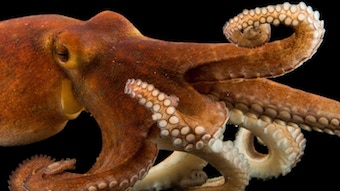These shy, solitary creatures will suffer tremendously if people are allowed to farm them.
Photo Credit: National Geographic
Our world has an nearly endless supply of stuff we know we’d be better off without. We brand many of them as ‘necessary evils’, because they’ve long served some other purpose. Such as feeding people. If in some sense we’ve come to rely on them, these unsavory and distasteful practiced can become firmly established. Getting rid of them might require significant new innovation, or perhaps our culture eventually evolves to the point that its continuation is completely unpalatable. These things take time. Sometimes decades or even centuries.
Even when they involve some form of cruelty or obvious injustice, once they’ve been in place for a while, it’s rarely easy to stop. With patience and persistence we can eventually get there, but how nice would it be in such cases it we hadn’t been tempted to take the easy path, and instead expended the effort to find a better way.
So we want to think very carefully before we just casually introduce new evil into the world. The push to establish octopus farms is exactly that.
We’ve written about this recently (see our blog post from Aug 21, 2022), but the worldwide effort underway right now compels us to speak out again.
It’s hard enough to get rid of awful things once they’ve become customary or established business practice. Once part of the historical fabric, governments are often hesitant to interfere. For example, cock fighting is a barbaric practice that’s still legal in some parts of France simply because it’s legally recognized as a traditional practice in those regions. And that’s despite the fact that most French citizens find it abhorrent.
Another issue can be that dismantling the apparatus of evil and negating its negative effects can be expensive, require years of effort from experts, significant changes to the legal framework, and so on. Putting an end to the injustice of whale and dolphin captivity certainly falls into that category. Undoing the harm caused by dolphinariums is going to be a really big job, with all the attendant heartache to go with it. If only we’d known better at the time we thought to build the first one.
Removing evil from the world is very difficult once it’s established a firm foothold.
So why on Earth would we want to introduce this new brand of evil now? Octopus farming is not like fish farming, with all of it’s unintended environmental impacts. We know very well what these creatures are. Farming them would mean we get all the negatives of fish farming, plus significantly more.
The octopus is two things that would make captivity horrific – solitary by nature and highly intelligent. Being kept tightly packed into small, constrained spaces would be, for them, traumatic at best. On farms built to produce 60,000 of them or more per year, for slaughter and human consumption. This would be acting deliberately to serve ourselves, while ignoring the injustice and utter lack of empathy that we’d necessarily inflict on another species, to pay for it..
We would be introducing a great deal of new suffering to a world which already has enough of it.
It’s important to tell our lawmakers that we want no part of it. Wherever you happen to live, urge your representatives to say no to octopus farming. We should know better. And it doesn’t reflect the kind of world we want to live in.
For The Orca’s Voice,
Anna, Canadian Cetacean Alliance



Leave a Reply